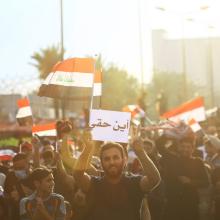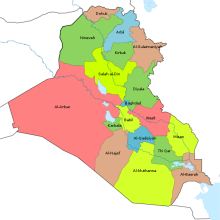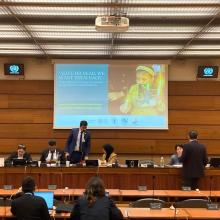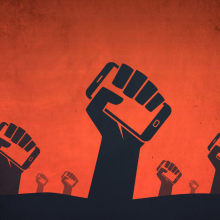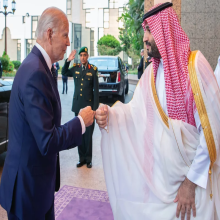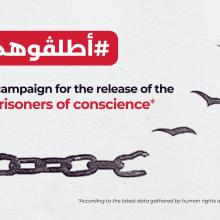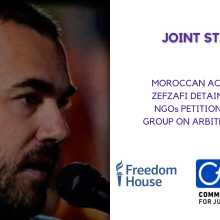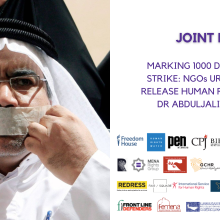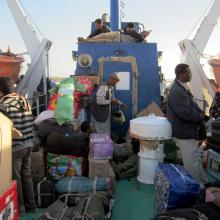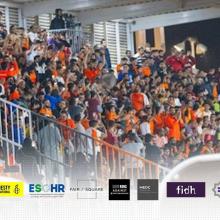15 أبريل 2021
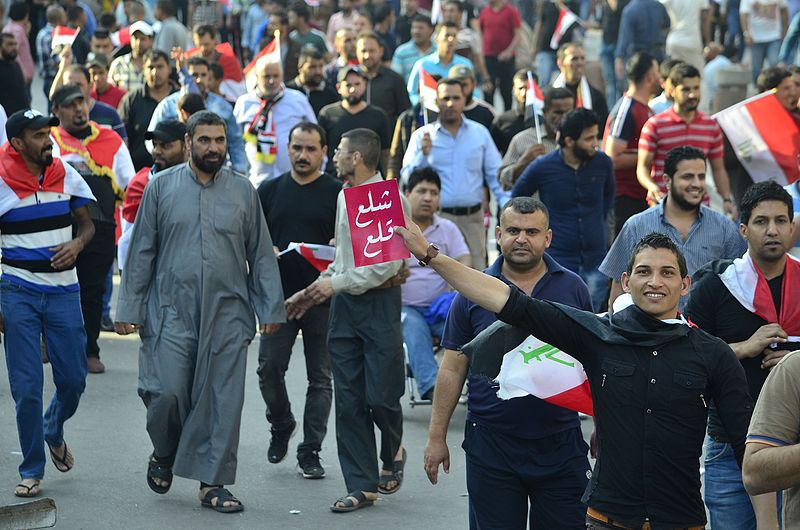
احداث العراق © Mohammed Saadawi, licensed under CC BY-SA 4.0.
By Ramzi Kaiss. Originally published on Middle East Eye on April 15, 2021.
Nationwide protests that emerged across Iraq in October 2019 allowed hundreds of thousands of Iraqis to collectively voice their demands for the end of political corruption and economic inequality in the country.
But a year and a half later, Iraq’s parliament is planning to vote on a recently amended draft law on freedom of assembly and peaceful demonstrations, which threatens to place undue restrictions on the right to protest in Iraq.
The draft law was first introduced to parliament in 2016, but the vote on its adoption was put on hold the following year. It was then amended and reintroduced in June 2019 and again last month, after the parliamentary human rights committee further amended the text. The original versions of the law were widely criticised by Iraqi and international rights organisations, who called for major amendments.
The draft law in its current form does present some improvements on earlier versions. Among other things, it would revoke the draconian Order No 19, instituted in 2003 by the Coalition Provisional Authority, which limited protests to certain hours and banned peaceful assemblies from occurring in public places and roadways without authorisation from coalition force commanders. The new draft law also removes the requirement of needing permission from authorities to organise a protest, and instead establishes a notification-based system.
Nevertheless, the draft law still places worrying restrictions on the right to protest in Iraq. Article 13(1), for example, punishes with imprisonment for a period of six months to one year, “whoever organises an assembly or peaceful demonstrations and does not submit written notification to the governor”. Meanwhile, article 11 authorises the use of force “if the public assembly or demonstration was organised contrary to the provisions of the law”.
Imposing prison sentences and fines on assembly organisers not only creates a climate of fear and repression within the country, but also runs contrary to Iraq’s international human rights obligations.
Commenting on the right to peaceful assembly, the UN Human Rights Committee, which monitors implementation of the International Covenant on Civil and Political Rights, which Iraq ratified in 1971, has maintained that “failure to notify the authorities of an upcoming assembly, where required, does not render the act of participation in the assembly unlawful, and must not in itself be used as a basis for… imposing undue sanctions, such as charging the participants or organisers with criminal offences”.
Excessive use of force
The use of force by security officials to disperse unlawful assemblies also contravenes established human rights norms. UN principles affirm that when dispersing unlawful but non-violent assemblies, “law enforcement officials shall avoid the use of force or, where that is not practicable, shall restrict such force to the minimum extent necessary”. The lack of such clear guidelines within the law, however, provides Iraqi security forces with the discretion to use force excessively.
Since the demonstrations that unfolded across Iraq in October 2019, protesters and activists have faced violent attacks and increasing threats from security forces and militias. The excessive use of force on display by Iraqi security forces and armed groups has resulted in the deaths of hundreds of peaceful Iraqi protesters, with Iraq’s High Commission for Human Rights putting the death toll from protest-related violence at more than 500.
Iraqi militias have played a particularly violent role, targeting protesters with impunity and even killing the family members of disappeared activists. Last month, Jasib Hattab Abboud al-Hiliji, the father of disappeared Iraqi lawyer Ali Jasib, was assassinated in Amarah after seeking accountability for his son’s disappearance and filing a lawsuit against members of the Iran-backed Ansar Allah al-Awfiya militia.
It is thus worrying that the draft law, under article nine, prohibits the use of face masks or other items to intentionally conceal facial features. Anonymity has, after all, provided many Iraqis with much-needed protection from violent acts of reprisal by militias, security forces and unidentified gunmen.
The UN has acknowledged that face coverings serve “to counter reprisals or to protect privacy, including in the context of new surveillance technologies”. As such, remaining anonymous “should be allowed unless [one’s] conduct presents reasonable grounds for arrest”.
Calling for change
Last month, a coalition of Iraqi and international organisations, including PEN Iraq, the Iraqi Network for Social Media and MENA Rights Group, submitted a joint letter to the Iraqi parliament, asking them to amend the provisions of the law and providing recommendations to bring the law in line with the country’s international human rights obligations.
Iraq’s Council of Representatives should now further amend the draft law. In the wake of Iraq’s October revolution, members of parliament, as representatives of the people, must protect the right of every Iraqi to protest without fear of reprisal. Despite some of the improvements it offers, the draft law in its current form does not quite achieve that.



